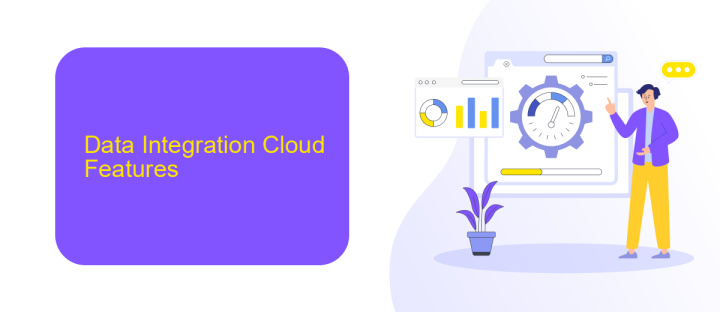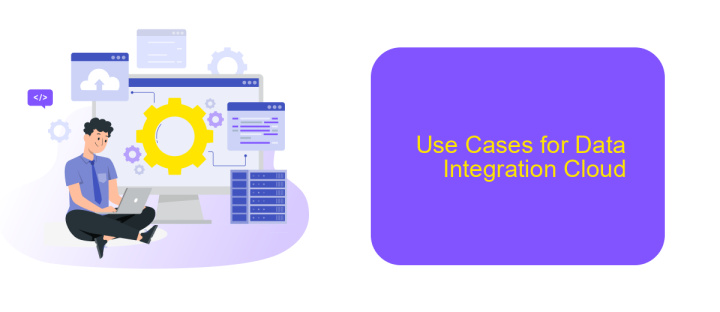Data Integration Cloud
In today's digital era, businesses are inundated with vast amounts of data from diverse sources. Data Integration Cloud solutions offer a seamless way to unify, manage, and analyze this data, empowering organizations to make informed decisions and drive innovation. By leveraging cloud technology, companies can achieve real-time data integration, enhanced scalability, and improved operational efficiency, transforming data into a strategic asset.
Introduction
Data Integration Cloud is a transformative solution that enables businesses to seamlessly connect disparate data sources, ensuring a unified and accessible data ecosystem. By leveraging cloud-based integration platforms, organizations can streamline their data workflows, enhance operational efficiency, and drive better decision-making processes.
- Centralized data management
- Real-time data synchronization
- Scalability and flexibility
- Enhanced data security
- Cost-effective solutions
One notable service in this domain is ApiX-Drive, which offers a user-friendly platform for automating data integrations without the need for coding. ApiX-Drive supports a wide range of applications and services, making it easier for businesses to connect their data sources and automate workflows. This not only saves time but also reduces the risk of human error, ensuring that data is always accurate and up-to-date.
Data Integration Cloud Features

Data Integration Cloud offers a comprehensive suite of features designed to simplify and streamline the process of integrating data across various platforms. One of the key features is its ability to support multiple data sources, allowing businesses to connect databases, applications, and cloud services seamlessly. This ensures that data flows smoothly between systems, reducing the risk of errors and improving overall efficiency. Additionally, the platform provides robust data transformation tools, enabling users to cleanse, enrich, and standardize data to meet their specific needs.
An essential feature of Data Integration Cloud is its user-friendly interface, which makes it easy for both technical and non-technical users to set up and manage integrations. For instance, services like ApiX-Drive offer intuitive tools that allow users to automate data workflows without the need for extensive coding knowledge. This not only saves time but also reduces the dependency on IT departments. Furthermore, the platform ensures high levels of data security and compliance, providing encryption and access controls to protect sensitive information.
Benefits of Using Data Integration Cloud

Data Integration Cloud offers numerous advantages for businesses looking to streamline their data management processes. By leveraging cloud-based solutions, organizations can ensure seamless data flow between disparate systems, enhancing overall efficiency and decision-making capabilities.
- Scalability: Cloud-based data integration platforms can easily scale to accommodate growing data volumes without significant infrastructure investments.
- Cost Efficiency: Utilizing cloud services reduces the need for on-premises hardware and maintenance, leading to cost savings.
- Real-Time Data Access: These platforms provide real-time data synchronization, ensuring that all systems are up-to-date with the latest information.
- Enhanced Security: Cloud providers offer advanced security measures to protect sensitive data from breaches and unauthorized access.
- Ease of Integration: Services like ApiX-Drive simplify the integration process, allowing businesses to connect various applications and automate workflows effortlessly.
Adopting a Data Integration Cloud solution not only improves operational efficiency but also enables businesses to make data-driven decisions with greater accuracy. With tools like ApiX-Drive, companies can automate and streamline their data integration processes, making it easier to adapt to evolving business needs.
Use Cases for Data Integration Cloud

Data Integration Cloud is a powerful tool for businesses looking to streamline their data management processes. By integrating various data sources, companies can enhance their decision-making capabilities and improve operational efficiency. This technology is particularly useful in scenarios where data from multiple systems need to be consolidated and analyzed in real-time.
One of the primary use cases for Data Integration Cloud is in the field of customer relationship management (CRM). By integrating CRM systems with other data sources such as social media, email marketing platforms, and e-commerce systems, businesses can gain a comprehensive view of their customers. This holistic perspective enables more personalized marketing strategies and improved customer service.
- Real-time data synchronization across multiple platforms
- Enhanced data analytics and reporting
- Automated workflows and data processing
- Improved data accuracy and consistency
Services like ApiX-Drive facilitate these integrations by providing a user-friendly interface and pre-built connectors for various applications. With ApiX-Drive, businesses can easily set up and manage their data integrations without requiring extensive technical expertise. This makes it an invaluable resource for companies looking to leverage the full potential of their data.
Getting Started with Data Integration Cloud
To get started with Data Integration Cloud, the first step is to choose a reliable platform that supports seamless integration of various data sources. One such platform is ApiX-Drive, which offers user-friendly tools to connect different applications without requiring extensive coding skills. Begin by signing up on ApiX-Drive and exploring its dashboard, where you can create new integrations by selecting the necessary data sources and defining the data flow between them.
Next, configure your integrations by mapping the data fields and setting up any required transformations to ensure the data is correctly formatted and usable. ApiX-Drive provides a range of pre-built templates for popular applications, making it easier to set up common integrations quickly. After configuring the data flow, test the integration to verify that everything works as expected. Finally, schedule regular syncs to keep your data up-to-date and monitor the integration's performance through ApiX-Drive's analytics tools, ensuring a smooth and efficient data integration process.
FAQ
What is Data Integration Cloud?
Why is Data Integration Cloud important for businesses?
How does Data Integration Cloud work?
What are the benefits of using automation tools for data integration?
Can small businesses benefit from Data Integration Cloud?
Apix-Drive is a simple and efficient system connector that will help you automate routine tasks and optimize business processes. You can save time and money, direct these resources to more important purposes. Test ApiX-Drive and make sure that this tool will relieve your employees and after 5 minutes of settings your business will start working faster.

